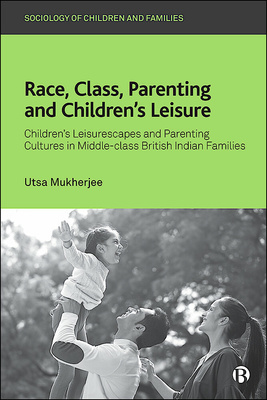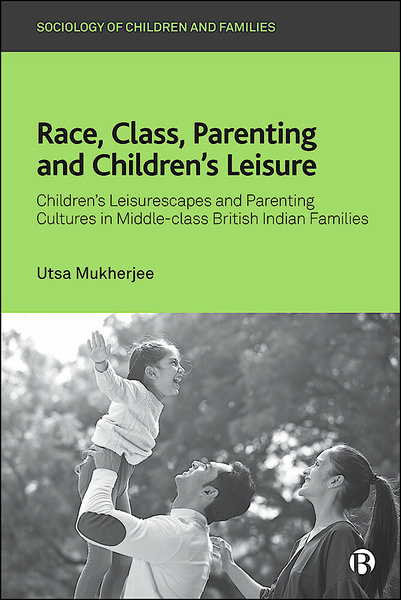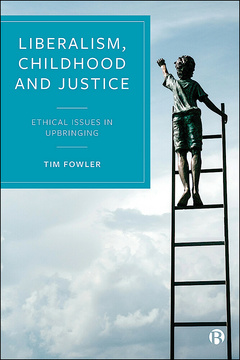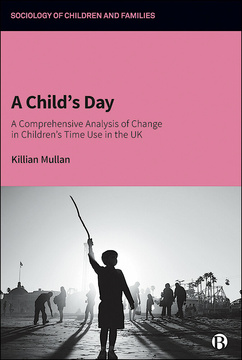Race, Class, Parenting and Children’s Leisure
Children’s Leisurescapes and Parenting Cultures in Middle-class British Indian Families
By Utsa Mukherjee
ISBN
978-1529219517Dimensions
234 x 156 mmImprint
Bristol University PressISBN
978-1529219524Dimensions
234 x 156 mmImprint
Bristol University PressISBN
978-1529219524Dimensions
234 x 156 mmImprint
Bristol University Press** Shortlisted for the BSA Philip Abrams Memorial Prize **
Children’s leisure lives are changing, with increasing dominance of organised activities and screen-based leisure. These shifts have reconfigured parenting practices, too. However, our current understandings of these processes are race-blind and based mostly on the experiences of white middle-class families.
Drawing on an innovative study of middle-class British Indian families, this book brings children’s and parents’ voices to the forefront and bridges childhood studies, family studies and leisure studies to theorise children’s leisure from a fresh perspective.
Demonstrating the salience of both race and class in shaping leisure cultures within middle-class racialised families, this is an invaluable contribution to key sociological debates around leisure, childhoods and parenting ideologies.
"This is a beautifully written book that breaks new ground. Working across family, childhood and leisure studies, Utsa Mukherjee brings to life the ways that race and class are integral to the everyday practice of how parents bring up their children. It is a marker in its field." Rosalind Edwards, University of Southampton
“This book brings together the literature on middle-class, non-white migrants and their children's participation in organised leisure-time activities. The result is an excellent portrayal of neoliberal incursions into ‘leisure’ and non-white migrant parents' attempts to practice intensive parenting as a way of breaching the racist structures which envelop their lives.” Bandana Purkayastha, University of Connecticut
Utsa Mukherjee is Lecturer in Education at Brunel University London.
1. Introduction
2. Critical Sociology of Children’s Leisure: A Framework
3. Concerted Cultivation the Indian Way? Organised Leisure and Racial Parenting Strategy
4. The Fun, the Boring and the Racist Name Calling: How Children Make Sense of their Leisure Geographies
5. Negotiated Temporalities: Leisure, Time-Use and Everyday Life
6. Relating, Place-Making, and the Cultural Politics of Leisuring
7. Concluding Thoughts











